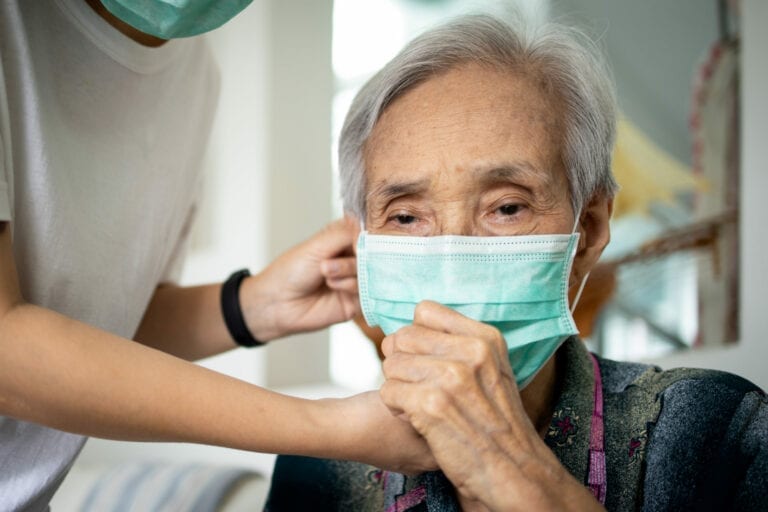Providing care for aging elders can be difficult for children and other family members. Still, it is also an opportunity to reflect on joyful memories and make plans. Those with elderly parents may be entrusted with caregiving, housing, and legal obligations. Those caring for aging relatives are not alone.
Caring for aging individuals and parents is prevalent, and the demand for caregivers continues to rise. According to a survey, 41.8 million persons in the United States provide care for patients aged 50 and beyond. You or someone you know will likely take the initiative to help aging parents live comfortably and with peace of mind, given the rising prevalence of senior caregiving across the country.
Whether your elderly parent or loved one requires assistance for the first time, or you are planning, it is crucial to be prepared. This could involve ensuring that legal documents and current life insurance policies are in place and keeping the number of a medical emergency hotline handy. Making the caring for aging parents checklist will help us.
A Checklist for Caring for Aging Parents
It’s hard for anyone to know how to plan for aging parents, but it’s especially hard for adult children with their own lives and responsibilities. Fortunately, we have compiled the caring for aging parents checklist.
Here are five considerations when contemplating long-term care for elderly parents.
1-Living Situation
When it comes to aging parents and elder care, the living circumstances of your parents should be one of your initial considerations.
These are some of the most prevalent housing options for elderly parents:
- Those who wish to provide their parents with hands-on care should care for them at home. Beginning a Care Coaching connection with an experienced caregiver may be beneficial. They can assist you in understanding how to plan for and care for aging parents.
- Placing your parents in a senior living community. There are numerous options for elder care, including independent living communities, nursing homes, and assisted living facilities. Many of these living arrangements provide personal care, and some offer medical help. However, many elderly individuals choose to age in situ and dislike relocating.
- Employing an in-home caregiver for your parents is superior to the other two possibilities. Caregivers enter your parents’ (or your) home and provide seniors with skilled, hands-on support. Moreover, depending on your parent’s care needs, several home care agencies offer respite care and 24-hour care.
2-Finances
The financial aspect of senior care is another essential item on the checklist. The level of care your parents can afford is contingent on their financial status. It also affects the medical and for other assistance they are eligible.
Several factors to consider include:
- Their benefits from the Social Security Administration
- Help for veterans and Supplemental Security Income
- Insurance and retirement plans
If your parents lack the financial resources necessary for survival, the duty may fall on your shoulders. Fortunately, federal tax credits and deductions are available to full-time family carers.
3-Legal Matters
Legal matter is one of the major component of caring for aging parents checklist.
Regarding elderly care for your aging parents, you may wish to consider the following:
- Putting yourself on your parents’ accounts as an authorized user
- Obtaining legal authority for your parents
- Creating a will for them (if they still need to do so).
Additionally, you’ll want to have the following documents available for your elderly parents:
In addition, you should have the following documents for your elderly parents:
- Certificates of birth and social security cards
- Deeds to properties and gravesites.
- Insurance policies
- Pension or employer advantages
4-Medication monitoring
The fourth item in our guide for aging parents is medication monitoring.
When considering how to assist your aged parents, it is crucial to comprehend their healthcare requirements. Even if they do not have a severe medical condition, they will likely require occasional care.
You can discuss your parents’ current medical issues and let them know you’re willing to assist. Connecting with your parents’ medical doctors or attending a couple of their appointments may also be beneficial. If your parents do not have a physician, you could help them choose one with whom they are comfortable.
Additionally, medication monitoring of your parents is crucial. You can conduct routine checks to verify your parents are taking their medications and assist them in obtaining refills.
Participating in your parent’s health journey might provide you peace of mind that they are receiving assistance when they require it.
5-Safety
A checklist for elder care would only be complete with a discussion of safety.
The safety precautions you implement will depend on your home decisions, but some areas to consider are the following:
- Ensure their living spaces are clean and organized to prevent trips and falls. Install or tighten railings, focusing on stair railings. It is also essential that rooms be well-lit.
- Parents may need to give up their keys as they age if they wish to continue driving. Consult with them and medical professionals about this matter. Provide transportation to and from their daily activities.
- Occasionally, it can be advantageous to observe your parents when they are at home or in public. There are numerous elder monitoring systems available so that you can keep tabs on your parents. As wandering is a common symptom of dementia, adult children with parents suffering from dementia may find it particularly vital to watch their parents.
Taking the time to consider your parents’ requirements and potential safety concerns can avert frustrations and serious injuries.
6-Morning routine exercise
Morning routine exercise is an additional pillar of healthy aging. Caring for older parents requires encouraging them to maintain their strength, stamina, and balance by walking, swimming, and attending senior-specific exercise courses, among other activities.
Eating good foods and morning routine exercise has been shown to reduce cognitive decline and decrease the advancement of Alzheimer’s disease and dementia.







